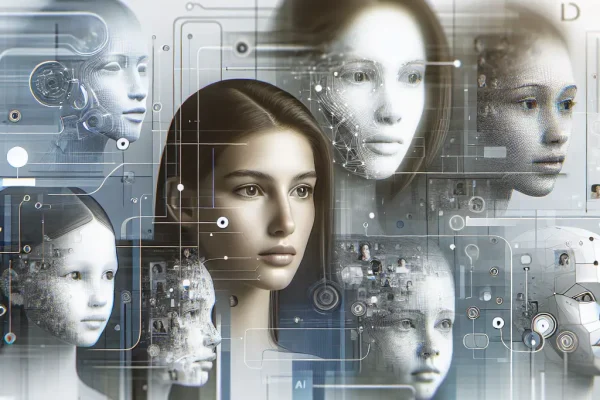What if logging into your favorite Twitch streamer’s chat suddenly required scanning your face? In June 2024, this became reality for millions of UK users—sparking fierce debate about online privacy, digital freedom, and the safety of young internet users. For the first time, a major global streaming platform is enforcing biometric ID checks at scale: a historic pivot that could redefine the future of social media access.
Twitch’s rollout of facial scanning for age verification in the UK isn’t just a tech tweak—it’s a seismic shift in how online platforms balance user anonymity with protecting minors. Critics warn it could be the end of anonymous internet culture; advocates argue it’s the only way to keep under-18s safe in a hyperconnected world. The stakes? Your privacy, your data, and potentially, the very soul of digital community.
The Problem: Twitch’s New Age Verification Scans — What’s Happening?
On June 28, 2024, Twitch unveiled a sweeping new age verification policy for all UK users: to access the platform, minors must submit to a facial recognition scan, and adults may also be required to verify when flagged. According to Reuters, this makes Twitch the first major streaming service to adopt real-time face checks for age gating at national scale.
- Twitch ID check for minors: Users under 18 (or those without confirmed credentials) must use a smartphone or webcam to complete a selfie scan. This image is analyzed by age estimation AI, which determines if the person is likely above the legal minimum age to access different content tiers.
- Is face scanning on Twitch mandatory in the UK? For UK minors, yes. Unverified users are prompted at login, and refusal means platform suspension. Adults may be prompted for spot checks.
- How does Twitch facial age verification work? The platform partners with Yoti, a third-party specialist, using facial analysis algorithms to estimate age without storing the user’s image long-term (The Verge).
- Twitch privacy concerns with facial recognition: Many fear biometric ID mandates set a dangerous precedent. Critics ask: Could it be exploited for surveillance or marketing?
This isn’t an isolated change: new facial recognition laws for UK streaming platforms are coming fast, as policymakers push platforms to meet stricter digital safety codes. Twitch is merely the tip of the iceberg—expect more social networks to follow suit.
Why It Matters: The Human and Emotional Impact
This policy puts a spotlight on our digital crossroads: Do we prioritize absolute online freedom, or maximize protections for vulnerable users?
- For Young Users & Families: The hard truth: Over 75% of UK parents worry about children encountering adult content or predatory behavior on livestreams (BBC News). Mandatory facial checks offer peace of mind, potentially shutting down underage accounts and bots that slip through text-based sign-ups.
- For Streamers & Viewers: Twitch’s culture is built on semi-anonymity—users pick nicknames and avatars, not photo ID. Face scans threaten this foundation. Many streamers fear loss of privacy or the chilling effect on marginalized voices and whistleblowers.
- Jobs, Creators & Economy: Britain’s creator economy and esports scene drive millions of pounds in ad spend and sponsorships. Will biometric barriers slow growth or foster a more trustworthy, safe ecosystem?
- Digital Wellbeing & Mental Health: Identity checks could curb cyberbullying and hate raids by deterring bad actors who depend on anonymity. But forced facial scanning might alienate neurodiverse or privacy-conscious users.
Expert Insights & Data: What the Experts and Statistics Say
Industry response has been swift—and deeply divided. Here are key expert perspectives:
- “We want to empower creators while keeping young fans safe, but the right balance is tricky” — Twitch UK spokesperson (Reuters).
- Advocacy group Privacy International warns, “Facial recognition is a slippery slope toward mainstream biometric surveillance. What stops this data from being used for profiling, now or in the future?”
- According to The Verge: “Yoti’s technology doesn’t store user images post-scan, but age estimation isn’t perfect. Error rates for teens can be as high as 6%, raising fears of wrongful bans.”
- “Biometric data is far more sensitive than passwords. A breach here would have grave implications,” emphasizes Dr. Rachel Fielder, Professor of Cybersecurity, University of Surrey.
Twitch biometric data security, as the company asserts, is a top priority: all scans are encrypted, stored securely (if at all), and not shared for advertising. But critics argue the landscape can shift quickly—and not always in users’ favor.
Alternatives to Twitch Facial Verification
- Gov.uk Digital ID Integration: Utilizing government-issued ID for age checks may reduce biometric risks.
- Parental Controls & Custom PINs: Encourage safer online behavior without storing faces or personal data.
- AI Content Moderation: Proactive AI filters for streams and chats to block sensitive material, with less focus on user identity.
But Twitch argues these alternatives have loopholes; facial verification is uniquely precise, especially for stopping fake accounts.
Future Outlook: The Next Five Years for Streaming & Biometric Law
In the next 1–5 years, expect major ripple effects for tech, law, and society—especially within UK borders:
- Spread to Other Platforms: YouTube, Discord, and TikTok are closely watching Twitch’s move; legal mandates could force wider adoption if age tech proves effective.
- Growth of the “Verified Web”: More sites might require biometrics, eroding anonymity but (potentially) cleaning up online hate and toxicity.
- Evolution of Facial Recognition Laws UK Streaming Platforms: Parliament is drafting stricter standards on collection, storage, and consent for biometric data. GDPR-style class actions could become common if abuses occur.
- Innovation in Privacy-Preserving Biometrics: AI edge processing and zero-knowledge proofs may permit verification without sending images off-device.
- Long-term effects of biometric age checks on social media: Studies will soon reveal whether facial scanning actually reduces harm—or just drives risky behavior to less-regulated corners of the web.
Suggested Infographic
- Title: “Biometric Age Verification Adoption: Twitch vs Other Platforms (2022-2025)”
- X-Axis: Major social media/streaming platforms (Twitch, YouTube, TikTok, Facebook, Discord)
- Y-Axis: Year of introduction of biometric age checks and percentage of user base affected
- Insight: Visualize how Twitch’s UK rollout leads a broader trend, using color-coded bars for the mandatory/optional status and scope.
Case Study Table: Comparing Age Verification Approaches
| Platform | Verification Method | Mandatory? | Privacy Risk Level |
|---|---|---|---|
| Twitch (UK, 2024) | Facial Scan (w/ AI) | Yes, for minors | High |
| YouTube | Gov ID/PIN | No | Medium |
| TikTok | Self-certification | No | Low |
| Discord | Photo ID (manual) | Sometimes | Medium |
Related Links
- [External: MIT: UK’s evolving facial recognition laws]
- [External: NASA study: AI ethics in biometrics]
- [External: WSJ: The global rise of biometric data privacy worries]
FAQ: Twitch Age Verification Face Scan UK — What You Need to Know
Is face scanning on Twitch mandatory in the UK?
Yes, for UK minors and any unverified accounts, facial age verification is now required. Adult users may also be asked during spot checks or flagged activity. Refusal means losing access to the platform (BBC News).
How does Twitch facial age verification work?
Twitch partners with Yoti’s AI technology, which estimates a user’s age based on a real-time selfie scan. The picture itself is deleted after the analysis, but age data may be kept as proof of compliance (The Verge).
What are the privacy concerns with Twitch facial recognition?
Privacy advocates warn that collecting millions of biometric scans could be a target for hackers, misuse by third parties, or future surveillance. Even with strong controls, there’s anxiety about normalizing face scanning as a condition for online participation.
Are there alternatives to Twitch facial verification?
Yes: digital government ID, parental PINs, AI-driven content filters, and community reporting are all possible methods. However, facial scans are currently seen by Twitch as the most tamper-proof for minors.
What are the long-term effects of biometric age checks on social media?
Experts predict a tradeoff: improved safety could come at the expense of digital anonymity. We may see reduced online harassment and predation, but also increased barriers to entry and erosion of online free speech rights.
Conclusion: Is Twitch’s Face Scan Era the Future—or a Threat?
Twitch’s bold move to require facial age verification for UK users has ignited a national—and global—discussion that’s impossible to ignore. In a bid to shield minors from online dangers, the platform may be ushering in the era of the “verified web”—with all its promises and perils.
Whether this trend marks the end of online anonymity or a much-needed evolution in digital child protection will hinge on how policymakers, platforms, and users negotiate privacy, trust, and technological progress in the years ahead.
What’s your verdict: Is facial scanning the price we must pay for a safer internet—or a digital overreach too far?


